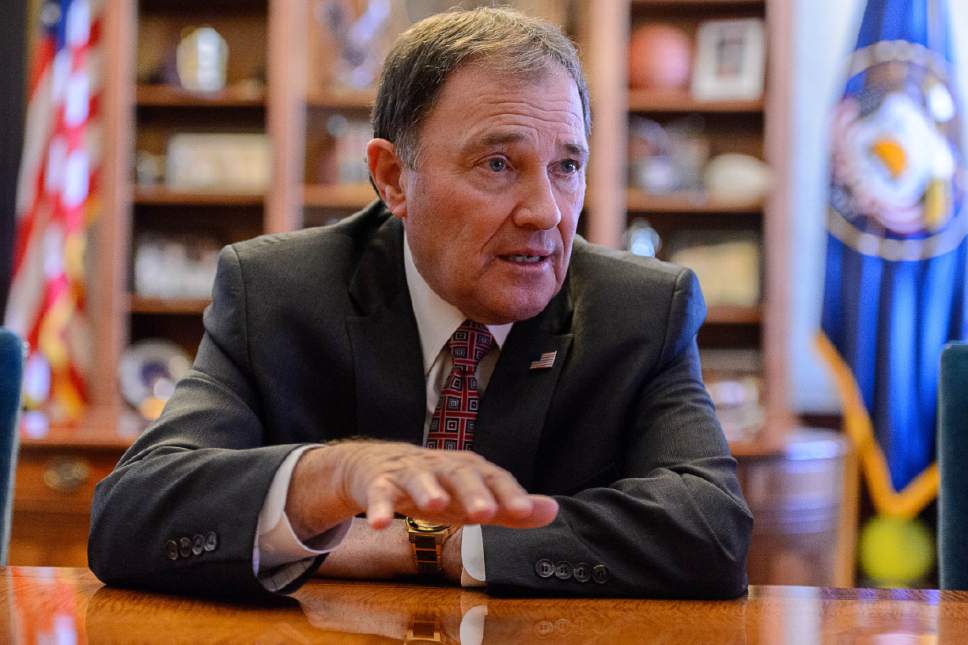This is an archived article that was published on sltrib.com in 2017, and information in the article may be outdated. It is provided only for personal research purposes and may not be reprinted.
After meeting Monday with President Donald Trump, Vice President Mike Pence and numerous members of Congress, Utah Gov. Gary Herbert said he feels that health care reform is not dead — and expects all sides still to seek compromise.
"I will say it is absolutely a necessity because what we have in place is not sustainable," Herbert, a Republican, told reporters in a conference call after his meetings, a few days after the House canceled a vote to repeal and replace the Affordable Care Act because Republicans lacked enough votes to pass it.
Herbert said anyone who is honest recognizes that the Affordable Care Act "is not sustainable. We're losing providers. In Utah, for example, 13 of our 29 counties now have only one provider. The providers are leaving it. They are losing too much money under the current legislation."
He noted that the Affordable Care Act pushed by former President Barack Obama took 14 months to pass, and a GOP replacement bill has been debated for only 17 days.
The nonpartisan Congressional Budget Office estimated that the GOP health plan would have ended up with 24 million few Americans with health care insurance and higher costs for many low-income and older citizens.
"We shouldn't be too surprised that we couldn't get everybody on board," he said. "I'd rather get it done right than get it done quick."
He added, "I think there's still a willingness to go back to their corners and come back out and see if we can't find compromise. I think the president is trying to reach out to even the Democrat side of the aisle."
Democratic leaders said they had no interest in participating in a deal that would end in worse health care for Americans.
"We're not going to sacrifice our values for the sake of compromise," Senator Chuck Schumer of New York, the Democratic leader, told The New York Times.
With reform in flux, Herbert said Trump indicated the administration currently is not willing to consider waivers to the current law — which Utah would need for a small-scale Medicaid expansion the Legislature approved last year to help a few thousand of the most vulnerable residents, including the homeless, the mentally ill, those recently released from prison and some low-income adults with children.
But Herbert held out hope that new reform will provide "more flexibility than we've ever had before."
He said one thing most people seem to agree on is the need to "give the states more flexibility, more autonomy. If we can find a way to cap what would be called potential runaway costs, I think we can come to a place that will in fact be a very significant step in the right direction."
He said he is pleased that the Trump administration and the GOP-controlled Congress have been inviting governors to be more involved in negotiations.
"We have had more input on this issue [recently] than in the last eight years combined," he said.
"This is refreshing," he said, noting that governors finally have "been invited to the dance" to help ensure that new reforms will treat them fairly.



